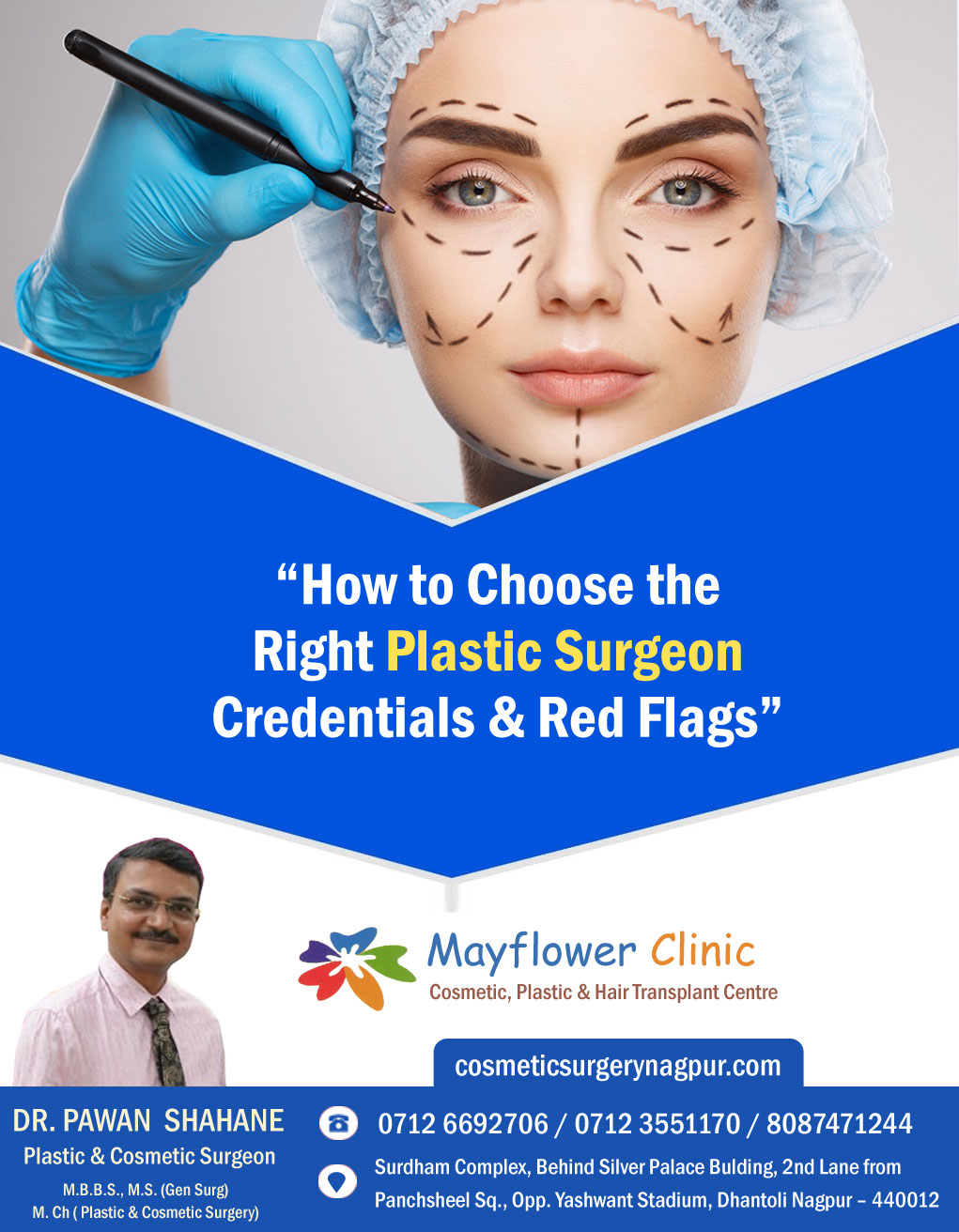
How to Choose the Right Plastic Surgeon: Credentials & Red Flags
Choosing the right plastic surgeon is a vital decision that can significantly impact your self-esteem, physical health, and overall experience with cosmetic surgery. With the growing popularity of aesthetic procedures, it’s important to understand not only the credentials that signify a competent surgeon but also to recognize the red flags that indicate a potential mismatch or risk. Here’s a comprehensive guide on how to navigate this critical process.
Understanding the Credentials
Board Certification
The first step in vetting a plastic surgeon is to verify their board certification. This certification means that the surgeon has completed an accredited residency program and has passed rigorous examinations.
Why it matters – Board-certified surgeons have undergone specific training in surgical techniques and complications related to plastic surgery.
Experience and Specialization
Look into the surgeon’s experience, particularly with the specific procedure you are interested in. A surgeon who has performed thousands of successful rhinoplasties or breast augmentations will have developed a refined skill set.
Questions to consider
- How many times has the surgeon performed the procedure?
- Are there before-and-after photos available?
- Does the surgeon specialize in a specific area (facial aesthetics, reconstructive surgery, etc.)?
Hospital Privileges
A reputable plastic surgeon should have privileges at an accredited hospital. This signifies that the hospital recognizes the surgeon’s qualifications and that they meet specific professional standards.
Why it matters – Hospital affiliations ensure that the surgeon has the necessary backup in case of complications and that they adhere to the standards of care set by the hospital.
Professional Memberships
Membership in professional organizations indicates a surgeon’s commitment to their field and continuous education.
Indicators of professionalism – Surgeons involved in these organizations are often required to meet ongoing education requirements and ethical standards.
Assessing the Surgeon’s Approach
Initial Consultation
The initial consultation is crucial. Pay attention to how the surgeon communicates. A good plastic surgeon should listen to your concerns, answer questions thoroughly, and manage your expectations realistically.
Red flags during consultation – If the surgeon seems rushed or dismissive of your concerns or if they push you toward a procedure you’re unsure about, it might be time to reconsider.
Emphasis on Safety
A reputable plastic surgeon prioritizes patient safety. They should discuss potential risks clearly, provide details about anesthesia options, and explain how they handle emergencies.
Look for –
- Discussions about post-operative care
- The establishment of a personalized recovery plan
Patient Reviews and Testimonials
Researching reviews from previous patients can provide a wealth of information. Look at multiple platforms to gather a well-rounded view. Positive testimonials combined with detailed accounts of experiences can guide your choice.
Follow-Up Care
A commitment to follow-up care signifies a surgeon’s dedication to their patients. Ensure that the surgeon provides a clear plan for follow-up visits and that they are available for post-operative questions or concerns.
Recognizing Red Flags
Unrealistic Promises
Be wary of surgeons who guarantee specific results or portray an ideal image of your potential surgery outcome. Every individual’s anatomy and healing processes are different, and a responsible surgeon will set realistic expectations.
Lack of Communication or Support
Poor communication, whether during the initial consultation or after surgery, is a red flag. If a surgeon does not answer your questions comprehensively or seems hard to reach, consider it a warning sign.
Cleanliness and Safety Protocols
Ensure that the surgeon’s office and the surgical facility are clean and follow proper safety protocols. A lack of cleanliness can indicate a broader disregard for patient health and safety.
High Pressure Tactics
If the surgeon urges you to make a quick decision or tries to sell you multiple procedures without thorough discussions, it indicates a lack of professional integrity. A trustworthy surgeon will want you to take your time to make the best decision for yourself.
Choosing the right plastic surgeon is an important journey that requires careful research, critical thinking, and a clear understanding of both credentials and potential red flags. Ensure you take the time to consult multiple surgeons, compare their qualifications, and reflect on their communication style and approach to patient care. Remember, cosmetic surgery is not merely a medical procedure; it’s a personal journey that can affect your life profoundly. Make sure to choose a surgeon who prioritizes your safety, satisfaction, and individual needs.


